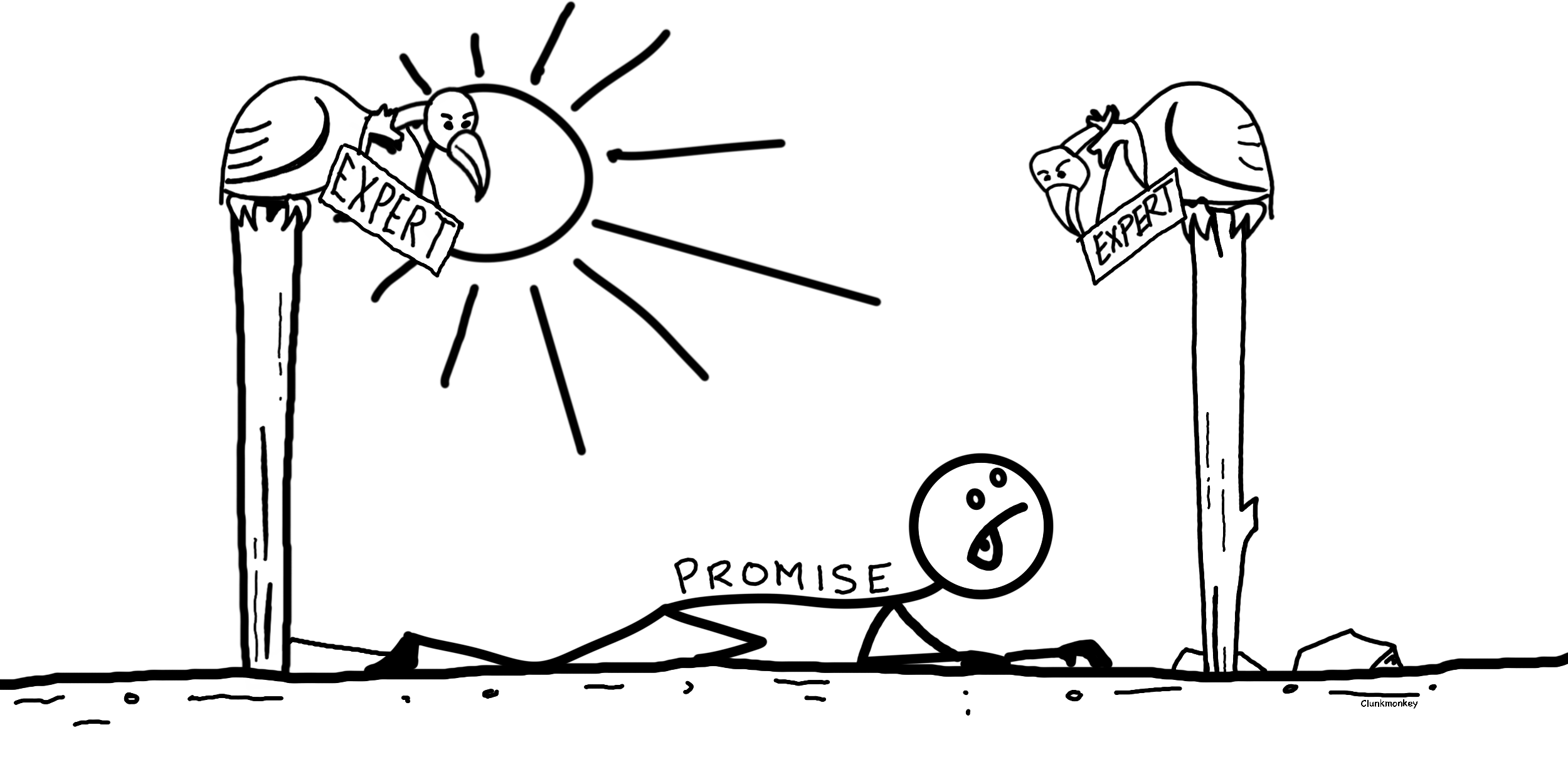Two math muckety-mucks asked me to coach their nine year old daughter.
“For some reason, she really loves playing tennis,” they said. “And we just want to keep it that way.”
Normally, I don’t teach kids. The way I ply my trade is so antithetical to the norm, that when parents are involved I spend more time explaining stuff to them than I do to the kid.
But I was working some draining projects. And her parents were really nice. Plus Mary (name changed) was so cute and enthusiastic… I reckoned it would be a fun respite from real coaching.
Once a week we met and played. We invented games together. No backhands… or forehands allowed. Game to 21. Sudden death at 20 all. Or, no two same shots allowed. Or, play on one leg. Or, every third ball you have to hit left handed. Or… well, you get the picture.
We ran and laughed… and taunted each other.
“Take that!”
“Oh yeah… You take this.”
“Didn’t see this comin’… did ya?”
“Maybe not but look what you left open…”
It was a genuine blast. Often, we’d all grab a bite to eat afterwards. Chips and guacamole and Pacifico beer were her dads favorite. Mary (name changed) would design next weeks game on a napkin.
By the time she was eleven, my spider sense was tingling. Mary (name changed) was rare. Not because she was super coordinated. Athletic kids are a penny a dozen. But because she was uncommonly adaptable. It was harder and harder to design games that taxed her imagination.
To be honest, I’d never seen anything quite like it. And I have played with the best of ‘em.
This wasn’t what I signed up for. What most parents don’t know… what most people don’t know know, is that just beyond the reach of every stadiums bright lights you’ll find the vast junk yard of failed promise.
I cautioned Mary’s parents to limit her exposure to the “tennis world.”
When she was twelve the United States Tennis Federation came calling. They invited her to one of their “training camps”.
Her dad and I talked about it. Looking back… this was the moment our paths diverged. He was understandably excited. I was not.
If there is one thing the USTA is good at… it’s destroying players. Their method – if you can call it that – of throwing hundreds of players into the pit and waiting for one to claw its way out, is a well proven fail.
I advised against it. I’m pretty sure that her dad interpreted my position to be motivated by fear of replacement. He sent her.
Mary (name changed) beat even most of the top sixteen year olds at that camp. I received an email from the camp director commenting on the originality and fearlessness with which she played.
Notice that word… fearlessness. Why would any kid be afraid to play tennis?
And now remember that we absorb our behaviors from the environment that we marinate in.
The word was out. And like vultures to fresh road kill, the “experts” gathered from the far corners of the tennis universe and descended on Mary (name changed). Each with a method… and a story of a great player it had created.
They watched our workouts. Warning her parents that my lack of a method… my reluctance to teach her how to play, would be her undoing.
They prescribed a steady regimen of tournament play.
They said she needed to learn “mental skills.”
They said she needed to learn to compete.
But… she’d already beaten everyone.
Maybe select state or national events. I said. But a steady regimen of tournaments? No way.
Play is like epoxy without the hardener. It’s indefinitely fluid and flexible. You can experiment with endless configurations. But once you add the hardener, you have only a few minutes to get everything lined up before it’s permanently set in place.
Competition is all too often the hardener.
Furthermore, what no one was able to see… or was willing to admit, was that their keen interest in Mary was proof that what she was doing was working.
They all talked about her range. The rotation she put on the ball. How dangerous she was from everywhere on the court. Not one of them picked up on her most unique quality… her total sincerity. Mary’s (name changed) superpower was that she wanted nothing from the game but to play it.
My gut told me that she was at a stage where hyper competitive play would change that. The game would become a vehicle… she would want something from it. And her superpower would disappear.
But it’s so difficult to overcome a persons attachment to revered social narratives. Whether True or not, people navigate their lives by them.
To two people who held multiple math PHD’s, the odds that everyone was wrong except me, were impossibly low.
“We love you… you know that. But… we have to do what’s best for Mary,” was how they kicked me to the curb.
I say this to you as a father of three now… there is no way of knowing what’s best for someone else.
Nevertheless, it was an amicable split.
From then on Mary (name changed) trained at a “training center”. She practiced with serious competitors. She started playing… and winning tournaments.
And she changed.
The fun and games were over. Mary worked on her game now. Experimentation was too risky. A bad loss would hurt her ranking.
The hardener was in. Her game was setting. And she wasn’t ready.
She kept improving. But, to my eye, her improvement was now in line with her physical growth. The quantum leaps in her development were a thing of the past.
The worst part of it: she played like she was running from something. Always nervously looking over her shoulder to see if whatever it was, was gaining. That free swinging, totally original player had been subsumed by the need to win.
I think her dad sensed it too. He would occasionally ask me for my input. I honestly had nothing to offer.
I already knew how the story ended.
Mary (name changed) got a full scholarship to a major university. She had a solid college career. After which she quietly quit tennis.
Just before I left on my global adventure, her dad and I got together. Chips and guacamole and a Pacifico. Like the old days.
As we got up to part ways he said, “you know, if you would have let Mary (name changed) compete earlier, she might have been great.”
“We’ll have to agree to disagree on that,” I answered. “But the one thing I’m sure we can agree on is… if everyone had left her alone, she’d still love the game. Which, if you remember, is all you guys said you cared about.”

